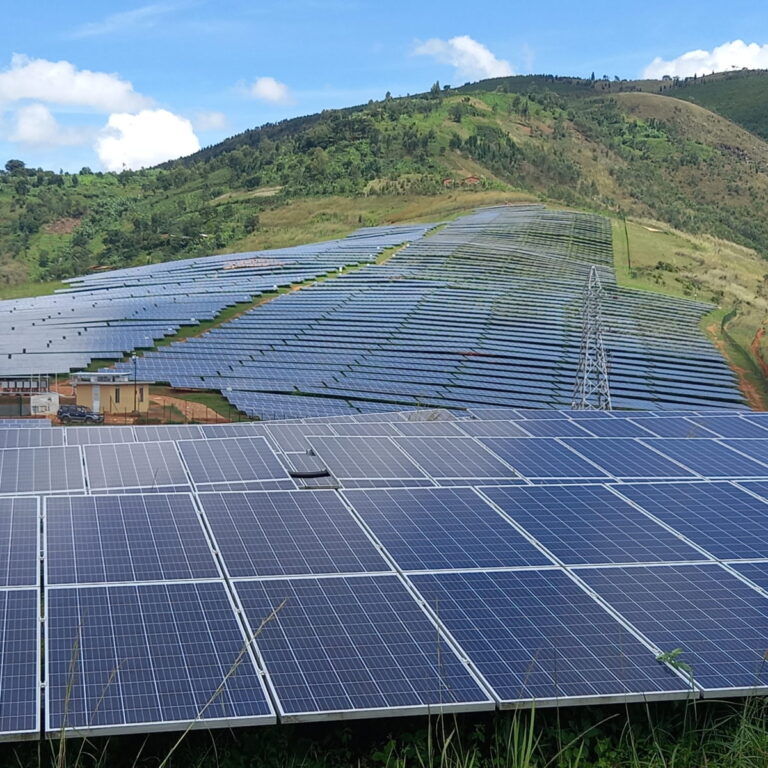Burundi, the poorest country in the world, is unable to buy fossil fuels on the international market due to a lack of hard currency. pv magazine spoke with the United Nations Development Program (UNDP) and a PV analyst to assess the true potential of PV in the country’s current energy crisis.
Burundi installed 340 kW of energy capacity in 2023, the UNDP said pv magazineadding that the country could increase this by 2024. The local office couldn’t do it provide a forecast for 2024 or the total installed capacity in 2022, because many small-scale projects often go unnoticed.
“Solar photovoltaics could help address the country’s energy complexity if properly maintained and controlled, through standalone solar power or by combining solar power with hydropower, as in the case of the mini Nyabikere hydroelectric power station in Karusi,” said UNDP spokesperson Aloys Sahiri.
Analysts say different configurations could help the poorest country further Soil to secure its energy needs. Some even talk about a possible “renewable energy revolution.”
“Burundi is positioned to lead the region in solar energy development thanks to 2,000 hours of annual sunshine, the intensity of solar radiation and untapped solar potential” says Chacha Mussa Machera, Sales Manager and Administrative Support for Africa at Amerisolar USA, adding the country currently has about 17 MW of installed solar PV capacity. “The most important option to stabilize the vulnerable electricity network is indeed through solar energy.”
Machera said Burundi mainly depends on biomass and hydropower for its electricity needs. However, both sources have limitations, especially during the dry season when biomass resources are scarce and hydropower generation declines. Climate patterns are also changing in the country due to global warming, which poses additional risks.
The government is actively encouraging the use of solar energy, Machera said.
“That happened recently put into operation laws and programs designed to promote investment in the solar industry,Machera added. “The National Electrification Strategy is one such initiative that aims to increase access to electricity in rural areas through the use of renewable energy sources, including solar energy.”
The government has tried to simplify rules, reward investors and promote public-private partnerships. According to Machera, such initiatives are attractive domestic and foreign companies eager to benefit from the growing solar energy activities in Burundi.
“A project worth mentioning is the 7.5 MW solar power plant built by Gigawatt Global in Mubuga, which provides clean electricity to thousands of Burundian homes.Machera said. “This project serves as a showcase for the viability of large-scale solar installations in the country and as a guide for upcoming initiatives.”
Isolated rural areas are also developing solar mini-grids, in collaboration with government agencies, diplomatic missions and NGOs.
The mini-grids provide power for lighting and essential appliances, creating opportunities for nearby businesses and educational institutions. Locals explain that the lack of expertise and spare parts poses a threat to future developments.
“The demand for technical knowledge and skilled labor in the solar energy sector poses another problem,Machera said. “To bridge this gap and ensure the sustainable growth of the solar industry, training programs and partnerships with international organizations are being formed.”
Locals still claim that poverty is an additional hurdle. Some, who wished to remain anonymous, said poverty is the main reason why PV panels, some installed through European financing programs, go missing.
The country has done that too teased by occasional cross-border movements of armed groups from the Democratic Republic of Congo and a systemic need for hard currency, making it difficult for the equatorial country to purchase fossil fuels on the international market. Most petrol pumps across the country are closed, but the few that are open attract the desperate attention of locals, creating queues stretching for miles. Gasoline has become a common gift at weddings.
Local The electricity produced, although not a perfect substitute for fossil fuels, especially in Burundi, can still alleviate the country’s energy povertyaccording to experts.
Statistics from the International Renewable Energy Agency (IRENA) show that Burundi had only 9 MW of installed PV capacity at the end of 2023.
This content is copyrighted and may not be reused. If you would like to collaborate with us and reuse some of our content, please contact: editors@pv-magazine.com.


